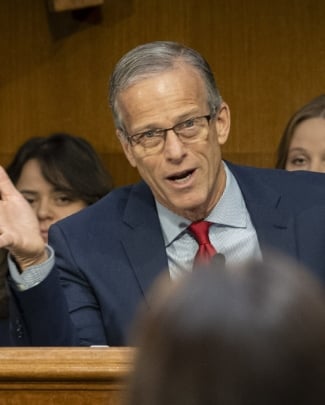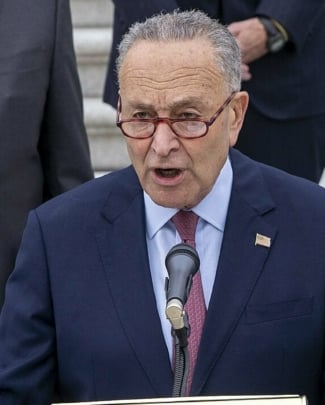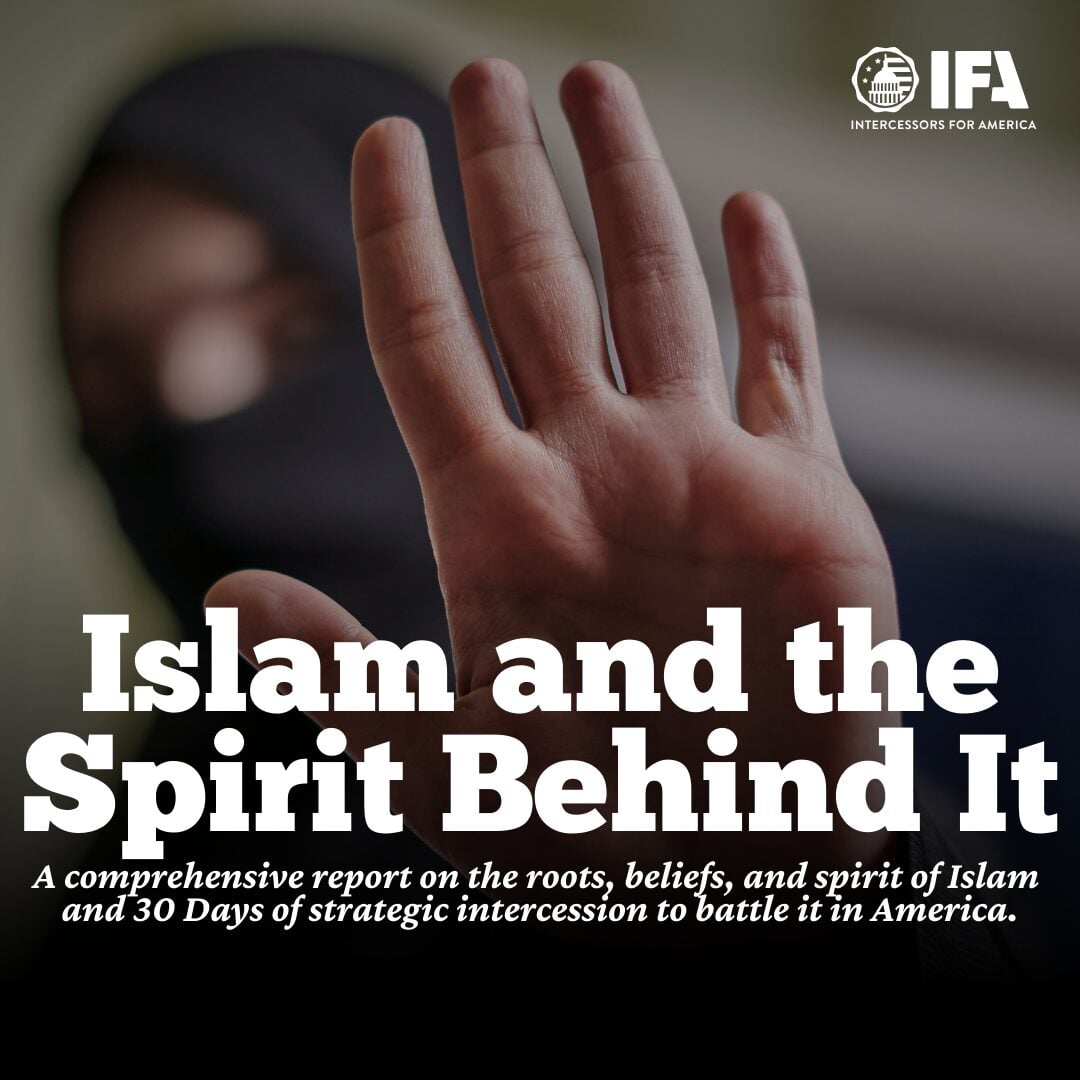MAJOR WEEK FOR RELIGIOUS LIBERTIES IN SUPREME COURT
DOES LOUISIANA DECISION INCH TOWARD ROE V. WADE REVERSAL?
WHO IS NOW REAPING THE WHIRLWIND?
REPORTED APPEARANCE BY KIM JONG UN?
WHITMER GETS A SURPRISE FROM THE MICHIGAN HOUSE
MAJOR WEEK FOR RELIGIOUS LIBERTIES IN SUPREME COURT
Next Wednesday, the Supreme Court will hear a pair of cases, Little Sisters of the Poor v. Pennsylvania and Trump v. Pennsylvania, which could write the final chapter in a multi-year struggle over whether employers with religious objections to birth control may deny insurance coverage of contraceptives to their employees.
With two Trump appointees occupying seats on the Supreme Court, the Court is now far more conservative than it was four years ago, when a similar birth control case reached the justices. It is likely, in other words, that religious conservatives can look forward to a big win in the Pennsylvania cases — one that would mean many individuals could be left without birth control coverage.
The question of whether people with a religious objection to a particular law must follow that law is now a mainstay of the Supreme Court’s docket. The Court will hear another case in its next term presenting the question of whether people with anti-LGBTQ religious beliefs may discriminate against same-sex couples, and it last took up a case involving religious objections to contraception in Zubik v. Burwell (2016).
But the Zubik case largely fizzled after Justice Antonin Scalia’s death left the Court divided 4-4 on which side should prevail. Now, however, the Supreme Court has five solidly conservative Republicans, so there will likely be a majority ready to grant expansive legal exemptions to religious conservatives.
The specific legal issue at stake in the Pennsylvania cases is slightly different from the one at issue in Zubik, largely because the current administration is extraordinarily sympathetic to religious conservatives. Past Supreme Court cases asked whether religious objectors may defy federal regulations requiring most employers to provide contraceptive coverage to their employees — or, at the very least, to participate in some minimal way in a government program that provides birth control coverage to workers.
The Pennsylvania cases, by contrast, involve challenges to Trump administration regulations giving many employers broad exemptions from the general rule that employee health plans must cover contraception. Under these regulations, employers that are not publicly traded may refuse to provide birth control coverage if they object to birth control, either on religious grounds or due to a “sincerely held moral” conviction.
Nevertheless, there is a fairly high chance that the Supreme Court will rule that broad exemptions for religious objectors are mandatory, regardless of whether the incumbent administration supports those exemptions. It is less clear, however, whether the exemption for “moral” objections will be upheld.
What’s happened in the legal fight over religion and birth control so far
Until about six years ago, religious objectors stood on very weak ground if they sought to deny a right to their employees. As the Supreme Court held in United States v. Lee (1982), “when followers of a particular sect enter into commercial activity as a matter of choice, the limits they accept on their own conduct as a matter of conscience and faith are not to be superimposed on the statutory schemes which are binding on others in that activity.”
Thus, an employer generally could not impose its religious views on third parties that do not share those views.
The turning point came in Burwell v. Hobby Lobby (2014), after regulations promulgated under the Affordable Care Act began requiring insurance plans to cover contraception. Hobby Lobby held that the federal Religious Freedom Restoration Act (RFRA) allows many employers that object to birth control on religious grounds to exclude contraceptive coverage from their employees’ health plans.
Hobby Lobby was hugely significant as a matter of legal doctrine, as it effectively eradicated the old rule that religious objectors many not undercut the rights of third parties. But the Court’s opinion in that case appeared to be fairly limited in scope. Justice Samuel Alito’s opinion for the Court leaned hard into the fact that, rather than requiring all employers to provide birth control coverage directly to employees, the Obama administration could have achieved the same goal more indirectly.
Under this indirect approach, an employer could “self-certify that it opposes providing coverage for particular contraceptive services.” Once that happened, the government could make a separate arrangement with the insurer that runs the employer’s health plan, which would ensure that the employer’s workers receive coverage for birth control.
After the Obama administration took up the Supreme Court on its suggestion that it use this more indirect method of providing contraceptive care, some religious employers objected to the process the Supreme Court appeared to endorse in Hobby Lobby. The result was a second round of litigation, which culminated in the Zubik decision.
Yet with the Court apparently split 4-4 on the proper outcome in Zubik, that decision did little more than punt the case back to the lower courts. The broader question of whether employers can wield their religious objections to deny birth control coverage to their employees remains unresolved.
The two sides in the Pennsylvania cases want the Supreme Court to decide vastly different questions
The striking thing about the briefs in the Pennsylvania cases is that the two sides want the justices to resolve very different issues. The states challenging the Trump administration’s regulations push for a narrow, highly technical decision tossing out those regulations because the administration did not jump through some required procedural hoops.
Meanwhile, both the Trump administration and an order of nuns that hope to preserve the administration’s broad exemption for religious objectors ask the Court for the same sweeping victory that religious conservatives sought in Zubik. (The order of nuns, known as the Little Sisters of the Poor, are not an original party to this lawsuit, but a federal appeals court permitted them to “intervene” in the case, thus giving them many of the same rights to litigate the case as an actual party.)
As a general rule, federal agencies must go through a process known as “notice and comment” before a new regulation can take effect. Under this process, the text of a proposed regulation is made public so that anyone can comment on it, and the administration normally must respond to these comments before the new rule can take effect.
But the Trump administration bypassed notice and comment when it created the strong exemptions for religious and moral objectors at the heart of the Pennsylvania case, although it did retroactively put the exemptions through notice and comment after they were already in effect.
According to a federal appeals court that struck down the exemptions, this backward process is not allowed. Though the administration argued that it could bypass notice and comment because of “the urgent need to alleviate harm to those with religious objections to the current regulations,” the lower court rejected this argument.
“All regulations are directed toward reducing harm in some manner,” Judge Patty Shwartz explained for the lower court. So if harm reduction were sufficient reason to bypass notice and comment, that process wouldn’t need to exist.
If the states convince the Supreme Court to embrace a similar rationale, that will delay resolution of the larger issues presented in the Pennsylvania cases, but it probably won’t do so for long. The Trump administration could always reinstate broad exemptions by going through a proper notice and comment period. And even if Trump leaves office before this process is complete, religious objectors could still file a new lawsuit claiming they have a statutory or constitutional right to deny contraceptive coverage to their employees.
Meanwhile, both the Trump administration and the nuns argue that the broad exemptions supported by the administration are mandated by law. As the nuns claim in their brief, the RFRA “not only permits, but affirmatively requires, the Final Rule.”
Indeed, the Trump administration argues that the very same self-certification process that the Court appeared to endorse in Hobby Lobby does not provide enough protection to religious objectors. “As became clear in litigation following Hobby Lobby,” the administration claims, “some employers hold the sincere religious belief that participating in a process by which their employees receive contraceptive coverage ‘makes them complicit in providing [that] coverage,’ even if the coverage is actually paid for by other parties.”
And so, the administration claims, these religious employers have an absolute right to refuse to participate in any way in a regime that helps provide contraceptive coverage to others, even if it means than many individuals will be denied access to birth control coverage. . .
(Excerpt from Vox. Article by Ian Millhiser.com)
Partner with Us
Intercessors for America is the trusted resource for millions of people across the United States committed to praying for our nation. If you have benefited from IFA's resources and community, please consider joining us as a monthly support partner. As a 501(c)3 organization, it's through your support that all this possible.


We use cookies to ensure that we give you the best experience on our website. If you continue to use this site we will assume that you are happy with it. Privacy Policy




Comments
Abortion is the birth control method millions choose and it is only legalized murder of the most innocent. Maybe New York needs to think about the recent law allowing abortion on full term babies might have something to do with the worst outbreak of Covid 19 in the nation.
Father, thank you for a company such as Hobby Lobby — who risked everything– for the right to follow Your commandments in the practice of their business rather than those dictated in an unbiblical law created by an unbelieving culture. Will You continue to bless all in that company and keep them faithful to Your word, generation to generation! Will You please raise up more courageous and biblically sound companies in our United States and the world, for the glory of your name. Will you direct the minds of the judicial decision makers next Wednesday in the ” Little Sisters of the Poor v. Pennsylvania and Trump v. Pennsylvania and bring a decision in accordance with Your commandments. Thank you in the Name of Jesus, Amen
Thank you for sharing this article and bringing this concern to light do we can pray for our religious convictions can prevail in this case.
Ellen